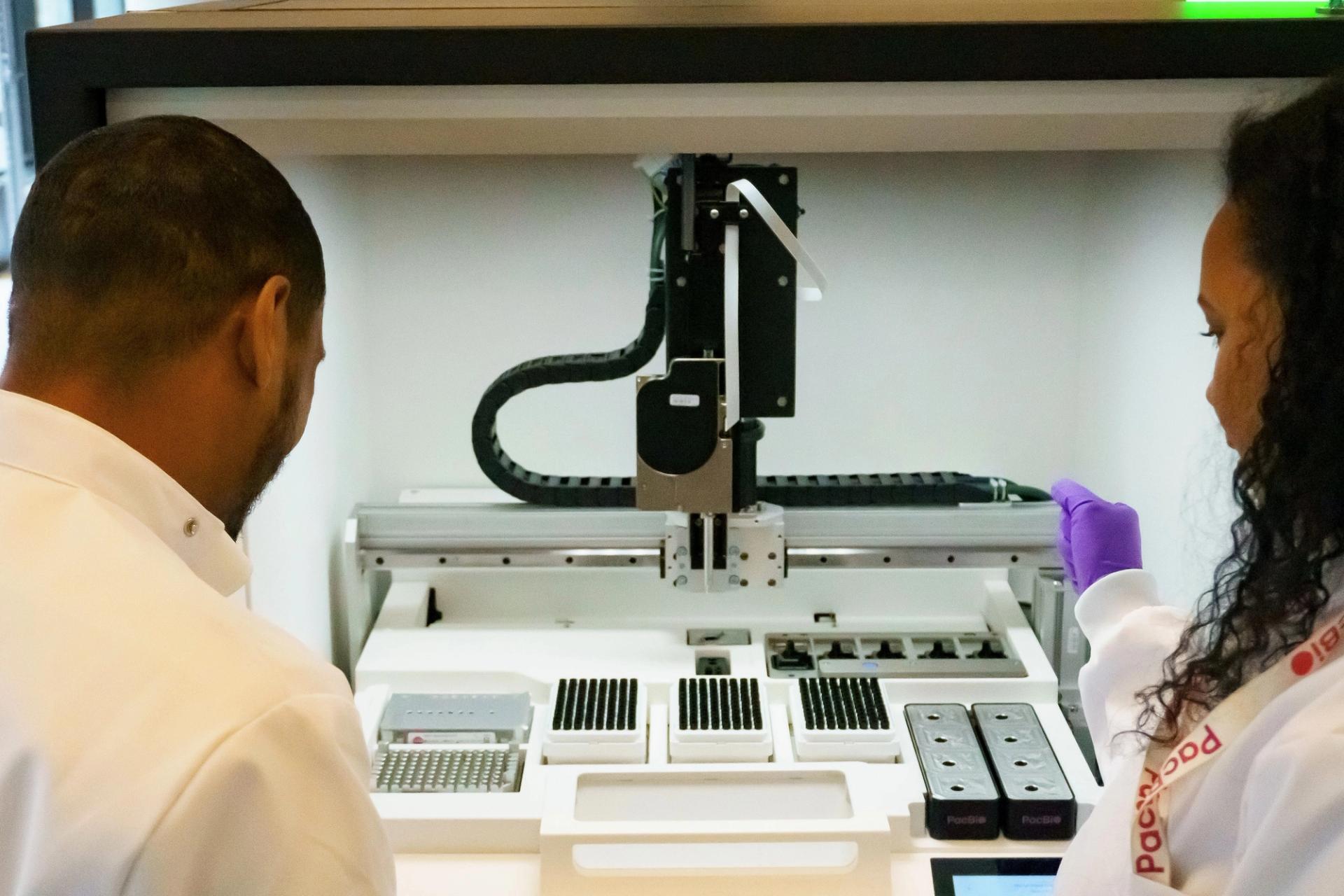Genomics expert highlights role of big data and collaboration
See how the secrets of the genome and emerging gene editing technologies are revolutionizing life sciences research
25 Feb 2025

Neil Ward, Vice President and General Manager of PacBio
PacBio is a technology provider in the DNA sequencing space, with a mission to enable the promise of genomics to better human health. Neil Ward, vice president and general manager of PacBio, shared with us what he finds most exciting about his work in the sector.
“It is really rewarding to help families who have a child with a rare genetic condition find the end of a long odyssey of different genetic tests and understand why their child is struggling,” Ward states. “It’s so exciting to see how that part of the field is continuing to evolve. We are on the cusp of this hopeful explosion of novel therapies and gene editing tools that give hope and promise to those families.”
Big data and its challenges
Genomics is the study of an organism’s DNA (its genome), involving the identification and characterization of its genes and how they interact, and it is difficult to overstate the breadth of impact genomics has had on our modern world.
However, to understand these complex genetic sequences, scientists must compile massive datasets, that pose further hurdles in terms of storage and analysis. “We’re getting larger and larger datasets that have challenges of just physically storing that information in a secure and safe way at the scale that’s required to continue to do the research that’s needed,” Ward notes.
As a result, high-end computing solutions are urgently needed to analyze big data. Advanced machine learning algorithms and techniques, including deep learning and cognitive computing, are emerging as integrative solutions for big data analysis.
To address these data challenges, PacBio collaborates with Google and is developing a methodology to minimize its data footprint. "Machine learning and other AI algorithms are going to be critical for us to extract the very most out of the data that can be produced," shares Ward. Cloud storage is further reducing the in-house IT infrastructure and cost associated with big data. However, the security of this storage is especially critical when it comes to genetic data.
"If I've shared my genetic information with the world and put it online in an insecure fashion, in any shape or form, then technically if there were a hack or a leak of certain data, information can be inferred about my family members’ potential genetics and genetic risk as a result of that,” Ward shares. “That's why genetic data is often treated somewhat differently from other medical information – because it not only affects that individual, but it can affect their relatives as well."

PacBio hopes to impact the genomics industry through DNA sequencing technologies
Collaboration and communication
While advanced technology and software are the key to the genomics data problem, it is becoming increasingly obvious that communication and collaboration – at a global scale – are vital to answer science’s big questions.
“Collaboration is absolutely critical,” Ward remarks. “Sharing of information, not just locally, but globally is really important.” He’s seeing a distressing trend toward isolationism, particularly due to geopolitics. “Brexit is a prime example of that,” Ward shares. “Whether you’re on one side of that argument or the other, undoubtedly, having the UK sit outside of the European Union makes it harder for UK-based researchers to share information about UK individuals with their peers within the EU. If you were to ask many of the researchers around the world, they would highlight it’s concerning that we are seeing increased challenges sharing scientific information around the world in an easy way.”
An example of scientific collaboration success is the study of crop diversity as a way to mitigate the impact of climate change on agriculture in West Africa. Ward notes the collaboration between researchers across the entire West African region was needed in order to obtain several genetic varieties of a certain crop. They were then able to study which varieties thrive in regions experiencing profound climate shifts, highlighting how mitigating the global impact of climate change will require a worldwide collaborative effort1.
New horizons in genomic research
Since the launch of the Human Genome Project in 1990, genomics has played an increasingly important role in human well-being. Biomedical research, personalized healthcare, food security, and agriculture are all influenced by this evolving field of study.
“Genomics will play more and more of a role in healthcare,” Ward opined of the future of genomics. He believes the future of healthcare is preventative, with genomics playing a central role in helping people understand their lifetime risks of disease and how to mitigate those potential risks. “In most cases of any disease, if we catch it early, we’ve got a much better chance not just of treating it, inexpensively, but actually curing it in the first place,” Ward added. “That’s where I’d love to get all healthcare.”
While PacBio’s work is focused on the rare disease space, its genomics research could impact several fields of study, including drug discovery and environmental and agriculture. Ward notes that genomics could be crucial to shaping the future of life on Earth. Ward concluded, “Genomics will play an important role in helping us better understand biodiversity loss and helping us grow nutritious foods to feed the growing population around the world.”
References
Rhoné B., et al., Pearl millet genomic vulnerability to climate change in West Africa highlights the need for regional collaboration. Nature (2020).
